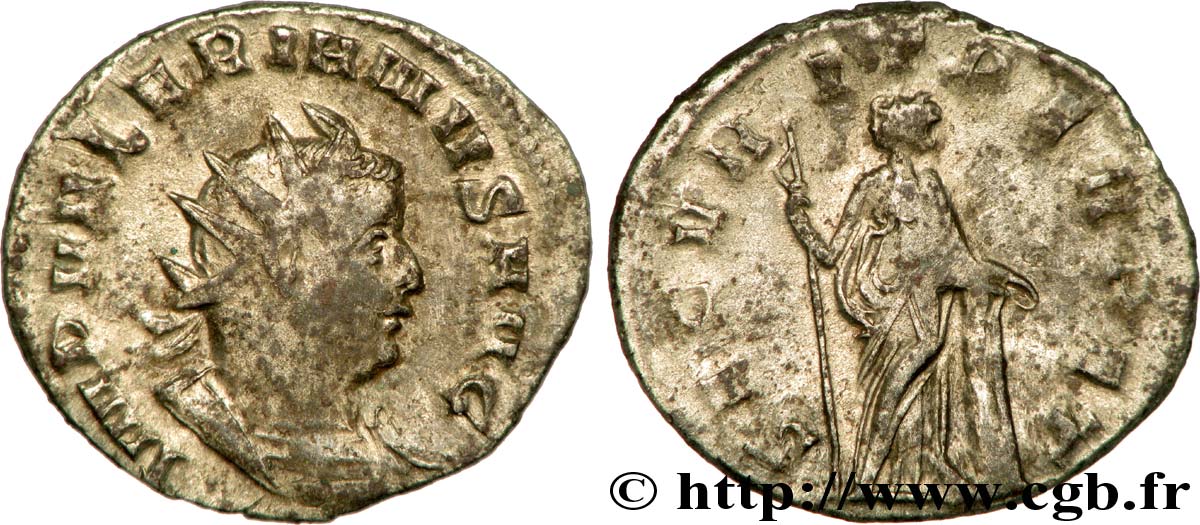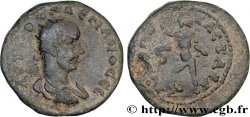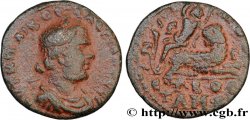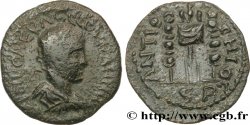E-auction 68-32731 - brm_236946 - VALERIAN I Antoninien
You must signin and be an approved bidder to bid, LOGIN TO BID. Accounts are subject to approval and the approval process takes place within 48 hours. Do not wait until the day a sale closes to register. Clicking on « bid » constitutes acceptance of the terms of use of cgb.fr private e-auctions.
Bids must be placed in whole Euro amounts only. The sale will start closing at the time stated on the item description; any bids received at the site after the closing time will not be executed. Transmission times may vary and bids could be rejected if you wait until the last second. For further information ckeck the E-auctions F.A.Q.
NO BUYER'S FEE.
NO BUYER'S FEE.
| Estimate : | 45 € |
| Price : | 8 € |
| Maximum bid : | 9 € |
| End of the sale : | 04 August 2014 15:35:00 |
| bidders : | 4 bidders |
Type : Antoninien
Date: 257-258
Mint name / Town : Milan
Metal : billon
Millesimal fineness : 250 ‰
Diameter : 20 mm
Orientation dies : 6 h.
Weight : 4,16 g.
Rarity : R2
Officine: 3e
Coments on the condition:
Exemplaire sur un flan ovale centré des deux côtés à l’usure régulière. Beau portrait inhabituel de Valérien Ier. Revers bien venu à la frappe. Jolie patine avec des reflets gris dorés
Catalogue references :
C.204 var. - RIC.256 - RSC.204 - Cunetio747 - Eauze1448 - RCV.9976 - MRK.88 /63 - MIR.36/869 c (12 ex.)
Obverse
Obverse legend : IMP VALERIANVS AVG.
Obverse description : Buste radié, drapé et cuirassé de Valérien Ier à droite, vu de trois quarts en avant (A).
Obverse translation : “Imperator Valerianus Augustus”, (L’empereur Valérien auguste).
Reverse
Reverse legend : SECVRIT PERPET.
Reverse description : Securitas (la Sécurité) debout à gauche, drapée, les jambes croisées, le bras gauche appuyé sur une colonne, tenant un sceptre long de la main droite.
Reverse translation : “Securitas Perpetua”, (La Sécurité perpétuelle).
Commentary
Poids très lourd. Avec l’intégralité de son argenture. Portrait particulier. Rubans de type 3. Ptéryges à peine visibles sous le paludamentum. Certains attribuent cet antoninien à l’atelier de Milan.








 Report a mistake
Report a mistake Print the page
Print the page Share my selection
Share my selection Ask a question
Ask a question Consign / sell
Consign / sell
 Full data
Full data










